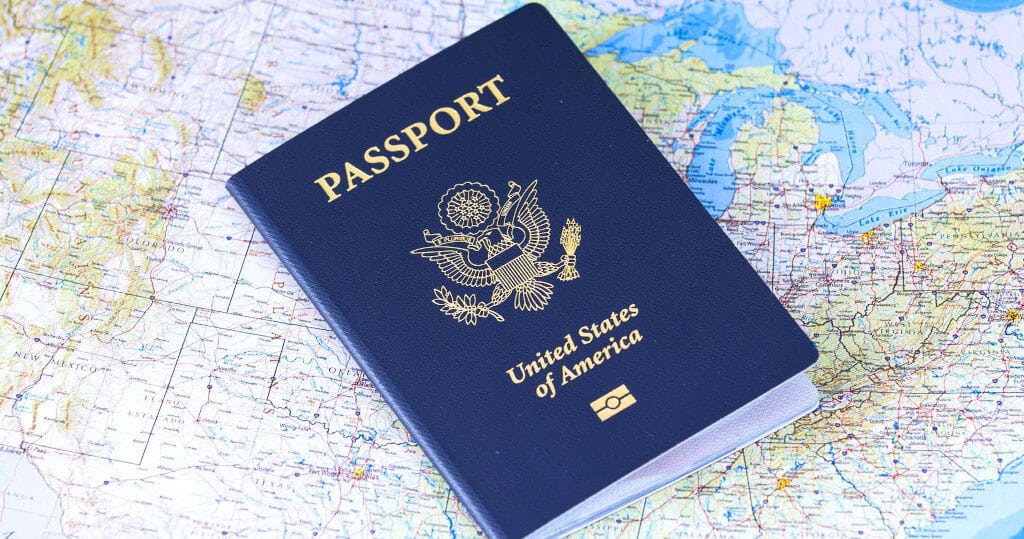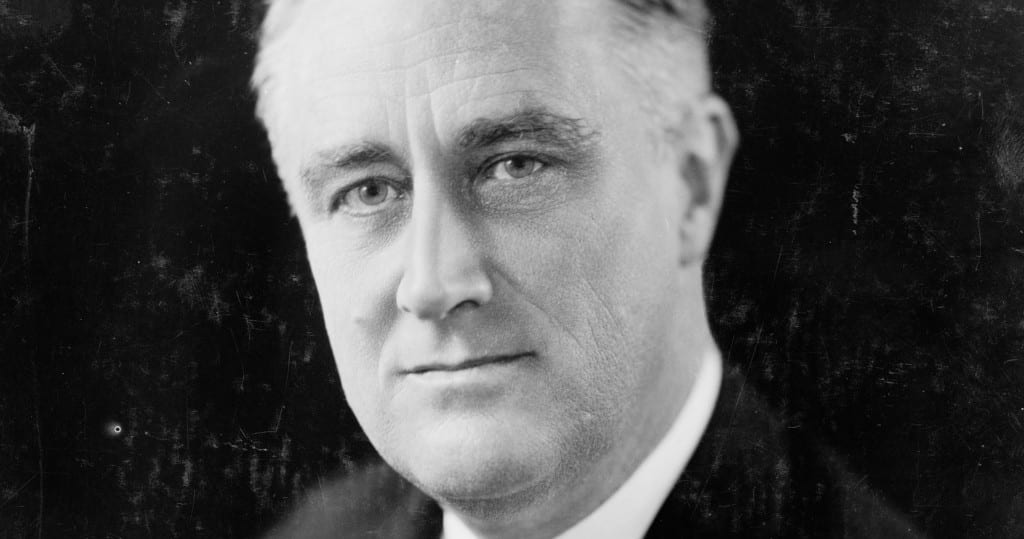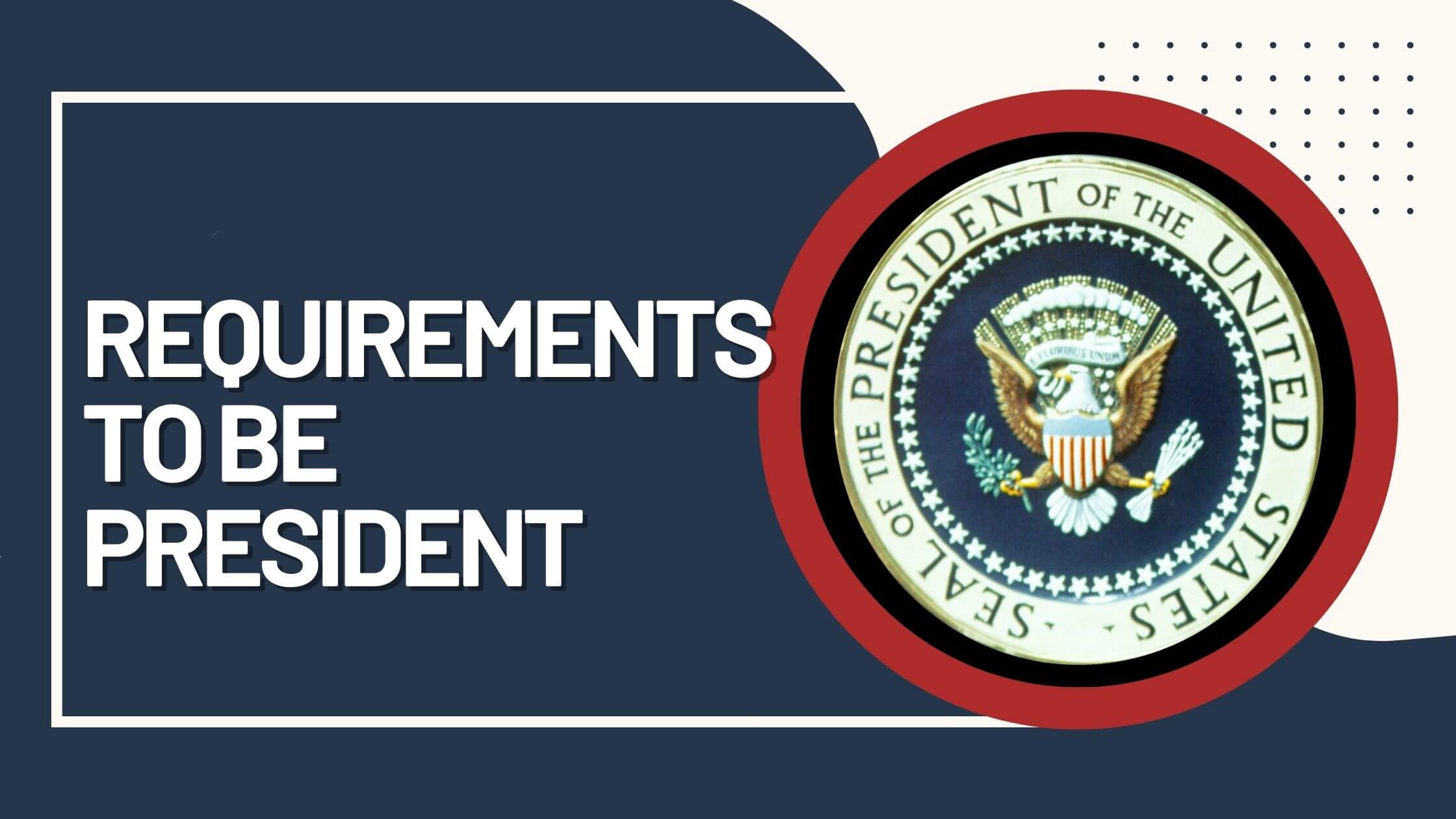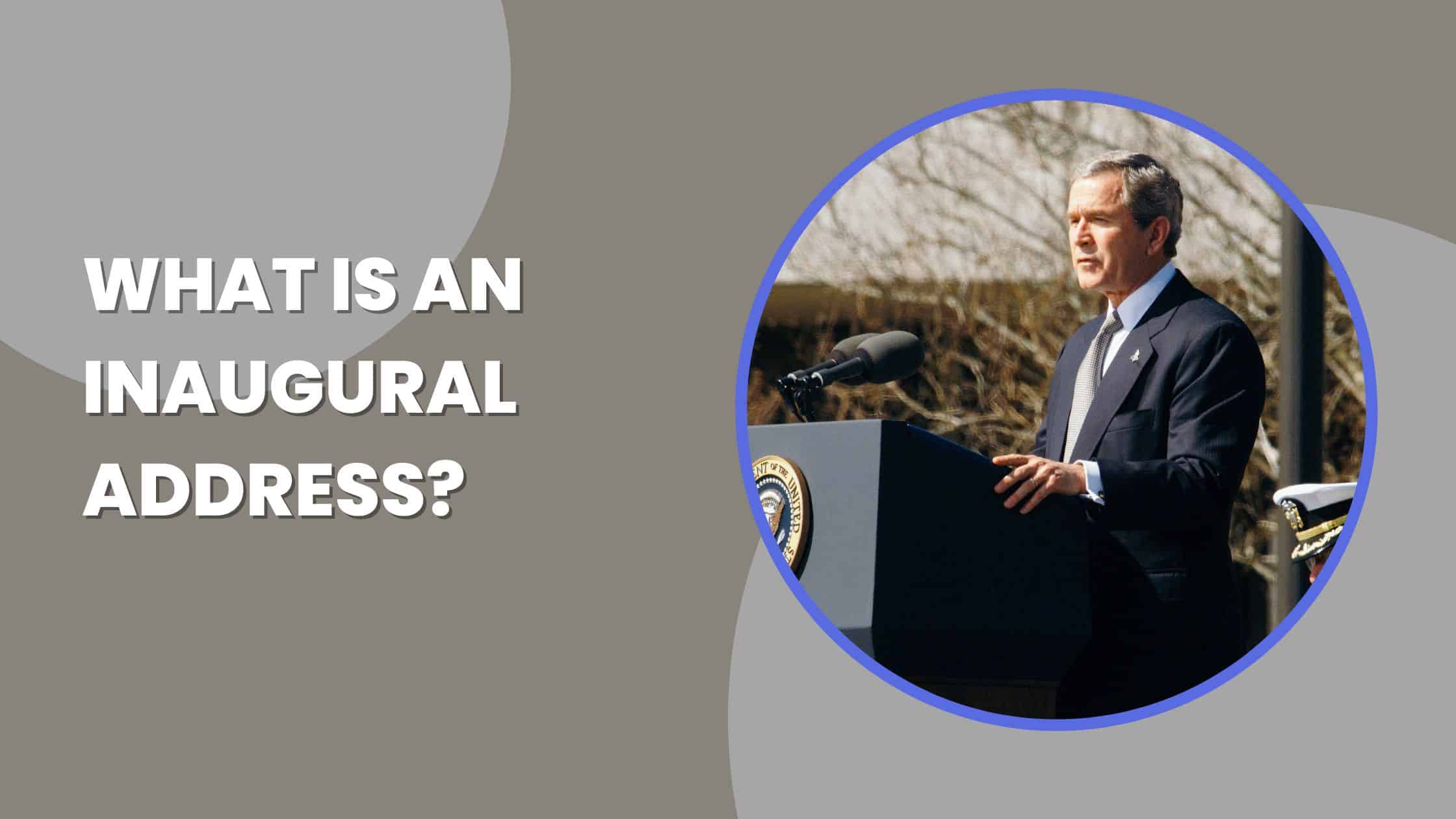Table of Contents
ToggleAnyone who has fulfilled certain requirements can run for office to be the United States President.
The 4 Requirements Are:
- To be a natural-born US citizen.
- To be a minimum age of 35 years old.
- To have been a resident of the United States for 14 years.
- To not have been elected president twice or served more than 10 years in office.
So although we may usually end up with a real choice between a Democratic Party Nominee and a Republican Party Nominee, the original field is broad for a presidential election.
Academic Qualifications To Become President
There are zero academic qualifications to become the United States President. You may have a Law degree from Harvard or not have finished school. Everyone has an equal right to run for president regardless of their qualifications.
Requirements To Become the United States President
While you might expect a massive list of requirements for the presidency to ensure we get the best possible candidates, that isn’t the case.

A lack of amendments to the United States Constitution means that the only qualifications relate to residency, a minimum age, and previous terms in office.

Get Smarter on US News, History, and the Constitution
Join the thousands of fellow patriots who rely on our 5-minute newsletter to stay informed on the key events and trends that shaped our nation's past and continue to shape its present.
Additionally, you must be a United States citizen. From there, pretty much anyone can put themselves forward.
There is nothing about upper age limits, health, or criminal convictions. You have to meet the minimum requirements, get on the ballot, and then you can hope for the nomination.
2020 Presidential Election
2020 was the perfect year for highlighting the lack of restrictions and the potential need for further amendments.

The final candidates for the Republicans and Democrats were incumbent Donald Trump and former Vice President Joe Biden, who was 77 at the time of the election and 78 when inaugurated..
Biden has previous political experience. Therefore, the race for the presidency felt like a logical career move.
After one term in the White House, President Trump had the experience, but nothing before that.
Meanwhile, Kanye West put himself in the running, showing that anyone who wants to run can at least try. The reason for this comes down to the wording of the United States Constitution.
No Person except a natural born Citizen, or a Citizen of the United States, at the time of the Adoption of this Constitution, shall be eligible to the Office of President; neither shall any person be eligible to that Office who shall not have attained to the Age of thirty five Years, and been fourteen Years a Resident within the United States.
Article II, Section 1, Clause 5

2024 Presidential Election
The 2024 presidential election further underscored discussions about candidate qualifications. Donald Trump, despite facing legal challenges, secured the Republican nomination and won the election against Democratic nominee Kamala Harris.
Donald Trump was 78 at his inauguration in 2025, making him the oldest individual to assume the U.S. presidency.
Donald Trump became the first U.S. president with a felony conviction prior to taking office, having been convicted in May 2024 on 34 felony counts related to falsifying business records.
How To Run for President
Article 2, addresses the constitutional requirements for running for president and vice president.

It applied to the role at the time of the formation of the USA and remains in place today. The article states the following three clauses:
- First, the president has to be a natural-born US citizen.
- The president has to have a minimum age of at least 35 years old
- The president must have been a United States resident for 14 years.
These three key points highlight potential issues with the process. For example, the third requirement caused a furor about Barack Obama’s birth certificate during his race for the White House.
Fun Fact: ex-UK Prime Minister Boris Johnson could run for president if he moved to the US, reclaimed his dual citizenship, and waited 14 years.
A natural-born US citizen
Furthermore, there are some interesting questions about the term “natural-born citizen.”

People born in U.S. territories, such as Puerto Rico, Guam, and the U.S. Virgin Islands, are U.S. citizens at birth and generally considered natural-born citizens eligible to run for president.
Military bases in foreign countries are not automatically considered U.S. soil, but children born abroad to U.S. citizen parents may still qualify as natural-born citizens under U.S. law and could be eligible to run for president.
Other Important Criteria Aren’t Taken Into Consideration
There are factors that the American public would consider highly important when choosing a candidate, yet they aren’t mentioned in the current regulations and guidelines.
This includes:
- An upper age limit for candidates.
- The health of the candidate.
- The possession of a criminal record.

Age of Presidential Candidate
There is no upper age limit for the president. Age has garnered criticism because of the negative implications of swearing in a senior citizen.
President Joe Biden was 78, and there are questions about why the Democrats couldn’t have found a younger, fitter, more relatable candidate.
The 25th Amendment and the Presidential Succession Act say that if Joe Biden is unfit to be president, the vice president will step up to be the acting president.
How old do you have to be to run for president?
There is no upper age to run for president.
There is a minimum age to run for president, which is 35.
Medical Health Issues
A related concern is that presidential candidates don’t have to publicize their medical history or information about current health issues.

While there is an argument for allowing candidates their privacy, others argue that it helps know candidates are fit for office.
That doubt increases when your candidates are 74 and 78.
There is no constitutional or legal requirement for presidential candidates to disclose their medical history, though some have voluntarily released health records. Critics argue that transparency in health could reassure voters, while others raise concerns about potential discrimination.
Example of Presidents with Health Conditions when they took Office
- Franklin D. Roosevelt: Roosevelt had a number of health issues, including paralysis from polio, heart disease, and high blood pressure. During his four terms in office, he worked hard to conceal the extent of his disabilities from the public.
- John F. Kennedy: Kennedy suffered from a number of health problems, including Addison’s disease, colitis, and chronic back pain. He was also taking a variety of medications to manage these conditions. Despite this, he was able to maintain the image of a youthful and vigorous leader during his presidency.
- Woodrow Wilson: Wilson suffered a severe stroke while in office in 1919, which left him partially paralyzed and unable to perform many of his duties. This was not disclosed to the public at the time, and his wife Edith took on many of his responsibilities in secret.
- Grover Cleveland: Cleveland was diagnosed with cancer of the jaw in 1893, but he was able to conceal the extent of his illness from the public until after he had already been elected to a second term.
- Dwight D. Eisenhower: Eisenhower suffered a heart attack in 1955 while in office. The extent of his illness was not fully disclosed at the time, and he continued to serve as President until the end of his term.
A US President With a Criminal Record
Nothing prevents you from assuming the role if you have a criminal record. This surprises some voters who expect their candidates to respect the law and be model citizens.
While some voters could overlook some minor state-level crimes that are inconsequential, more significant federal crimes may be looked at more harshly by voters during the election.
The 22nd Amendment on the Maximum Number of Terms in Office
Initially, there was no limit to the number of terms that a president could stand for. However, as George Washington stood twice, there was an unwritten agreement that any president would stand down after two terms.

This changed with President Franklin D. Roosevelt, who was elected to office in the executive branch on four occasions. The 22nd Amendment discusses the number of terms a president can serve.
Donald Trump’s re-election in 2024 made him the second U.S. president to serve non-consecutive terms, after Grover Cleveland.
The 22nd Amendment came into effect via ratification on 27 February 1951. It states that a candidate may only be elected to the office of president for a total of two terms or eight years.
These terms don’t have to be consecutive, but you can’t run for a third. The Amendment came about after the four-term presidency of Franklin D. Roosevelt.
President Trump’s return.
Donald Trump announced his 2024 presidential bid on November 15, 2022. He clinched the Republican nomination in March 2024 and selected Senator JD Vance as his running mate. Trump won the November 2024 election, defeating Democratic nominee Kamala Harris, and was inaugurated in January 2025.
Qualified Candidates Face a Simple Process To Run for US President
If you meet all of the criteria, running for president is surprisingly streamlined. There is a 4-step process to run when you meet the requirements.
- Fill out a statement of candidacy form – something not always necessary unless you’ve received more than $5,000 to fund your bid.
- Get on the ballot for your chosen party or as an independent.
- You can participate in political debates to get the vote in the primaries. You would usually also run the ticket with a vice president.
- If you win the nomination, you can continue on the election trail and wait for the final vote from the Electoral College.
Minimal Requirements and Qualifications
In short, the presidential requirements and qualifications are short, sweet, and relatively unchanged from the days of the constitution.
So if you are a natural-born citizen with 14 years of residency, are over 35, haven’t served two terms before, and are willing to go through the process, you have a chance (however slight) to get elected.
| Requirement | Description |
|---|---|
| Age | Must be at least 35 years old |
| Citizenship | Must be a natural-born citizen of the United States |
| Residency | Must have been a resident of the United States for at least 14 years prior to running for office |
| Political Experience | No formal political experience is required, but many presidents have held political offices before |
| Education | No specific education requirements, but many presidents have advanced degrees |
| Campaign Finance Laws | Must comply with campaign finance laws and disclose all campaign contributions |
| Election Process | Must win a majority of the votes in the Electoral College to be elected president |
| Term Limits | Can only serve two terms as president, as mandated by the 22nd Amendment to the Constitution |
| Oath of Office | Must take the oath of office to “preserve, protect, and defend the Constitution of the United States” |
Can anybody become president?
Although there are minimal requirements to become president, it is still tough to become president as many stumbling blocks are in the way.
Here are some things that will make your bid become more successful:
Be affiliated with a major political party
Two major political parties have generally dominated United States elections.
Only one U.S. president has won an election without being affiliated with a political party: George Washington. John Adams was a member of the Federalist Party.
This likely happened as they were the first two presidents and stood before the two-party system was as strong.
In modern times, one of the unwritten requirements is that you belong to one of the two major political parties to win the election to become president.
Have access to campaign financing.
Running as a presidential candidate requires access to a large amount of money to run a campaign.
This money is spent on advertising, staff salaries, travel, and other campaign-related expenses. If you don’t have it, you are unlikely to succeed.
This is how much has been spent by presidential candidates on campaigns in the last few elections:
2020 Presidential Elections

Joe Biden’s campaign and affiliated committees spent approximately $1.6 billion.
Donald Trump’s campaign and affiliated committees spent roughly $1.1 billion
2016 Presidential Elections

Hillary Clinton spent approximately $1.2 billion.
Donald Trump spent approximately $600 million.
2012 Presidential Elections

Barack Obama spent approximately $1 billion.
Mitt Romney spent approximately $800 million.













18 Responses
Presidential candidate should have mental health checks also after entering the WH.
Half way through their term they should be checked again. We deserve to know they’re healthy after all we elected them to protect us.
You do realize the President is a citizen of the United States and is protected by HIPAA.
Discloser would make that law moot
Greetings Sarge. (USAF E-4 here.) While I agree with 100% of your post, HIPAA could be amended to exclude President/Vice President from protection. However, given the gross polarity between both parties, one side would support an amendment with the other rejecting it.
Could it happen? Certainly.
Will it happen? Not in our lifetime. Not unless the polarization ends.
I think a problem with that rule is the question .. who determines who is mentally healthy
I thought for sure they had to live in a state a certain amount of time. I’m surprised.
Those born on foreign located military bases have birth certificates of the base’s U.S. county of linkage, as if born in that county. They are specifically and intentionally noted as natural-born citizens.
For instance, Taiwan located U. S. military naval base in 1961, births there are noted as certified for birth in a county near San Diego, Fort Pendleton , I think, therefore natural-born U.S. citizen
Additionally, as you said, all births on overseas US military bases have full citizenship and can run for president (Ted Cruz was born on a US base in Canada).
The world has become so complex and extensive knowledge of foreign affairs so important
educational criteria needs to be added.
Education by who CIA, State department full of opposing party? That would be the next corrupted class taugh. We all know universities lean over 90% to one party & would just be other legal class university gatekeeping tool. There’s one main document that needs to be known by all owners of the republic (not democracy) THE CONSTITUTION of which every president in my life has committed treason against. We need a plumber in the oval office that meets the constitutional standard & knows it.
Oh come on… Criminal Records are not considered?? How about – Obstruction of justice? Or, inciting riots?
So if one party brings bogus charges against an opposing candidate then you think that should be considered?
I love the president of the united states. I could give him a big kiss.
Unfortunately it isn’t feasible to codify into law all the reasonable qualifications to run for the office. It shouldn’t be necessary anyway, providing we had a well informed populace in which most of those persons qualified to vote actually voted!
Typically for presidential elections about 100 million don’t bother to vote.
Wasn’t there a Constitutional requirement that BOTH parents of a candidate be American citizens when their child was born? (excluding the period immediately following the Revolutionary War when we were all Europeans) The idea being to avoid “split loyalty”. My favorite political pundit claims he is ineligible to run for President because his mother was a British Subject. (he was born in New York City) Has something been removed from the definition of “natural born”?
Competency to hold office based on “American History” and the ability to have some higher level of “common sense” especially in military matters and weapons capability in world affairs in general,
are concerns in light of Russia, China and Ukraine (i.e. nuclear usage applications).
Why start wars when there does not need to be and why have madness begin and peace end !
The United States of America has welcomed all nations to come throughout the history of time to this country “ to have a better life .”
The wall from former president Trump was intentionally built to keep Mexicans and Hispanics out from invading this country that has been a known as a melting pot of all languages and cultures.
Someone tell me WHY this wall has cost us the United States of America over 21 billion dollars to keep them out when they are like many other nations that want to come and provide their families a better life
WHEN us as a nation could have taken the roughly 21 billion dollars to help the Nation of Mexico in giving them clean water and better medical supplies and what they need to be able to provide for themselves and their families.
We are here on this earth to help each other! Why are we fighting with other nations and being proud and arrogant and not sit down and come up with solutions to come to terms in working together!
WHY are we in this country at most jobs being paid less than what just our mortgage
Is and most Americans live pay check to pay check !
The United States of America needs to know that this country is the people! Pride comes before the fall and yet this country has been so blinded by power that our country is falling !
We don’t need to all like each other or necessarily agree with each other but respect each other!
How can a person with a felony be president when the law states that you can not receive a clearance to review classified information.
Exactly.
And in many states, felons aren’t even eligible to vote (not that I agree with that…).
But as citizens, can’t we check out the criminal histories of potential candidates so we can “hire” responsible representatives?
Employers do background checks.
Cannot imagine voting for someone who was reckless in office-especially for a 2nd term!? They will have even less boundaries than before.